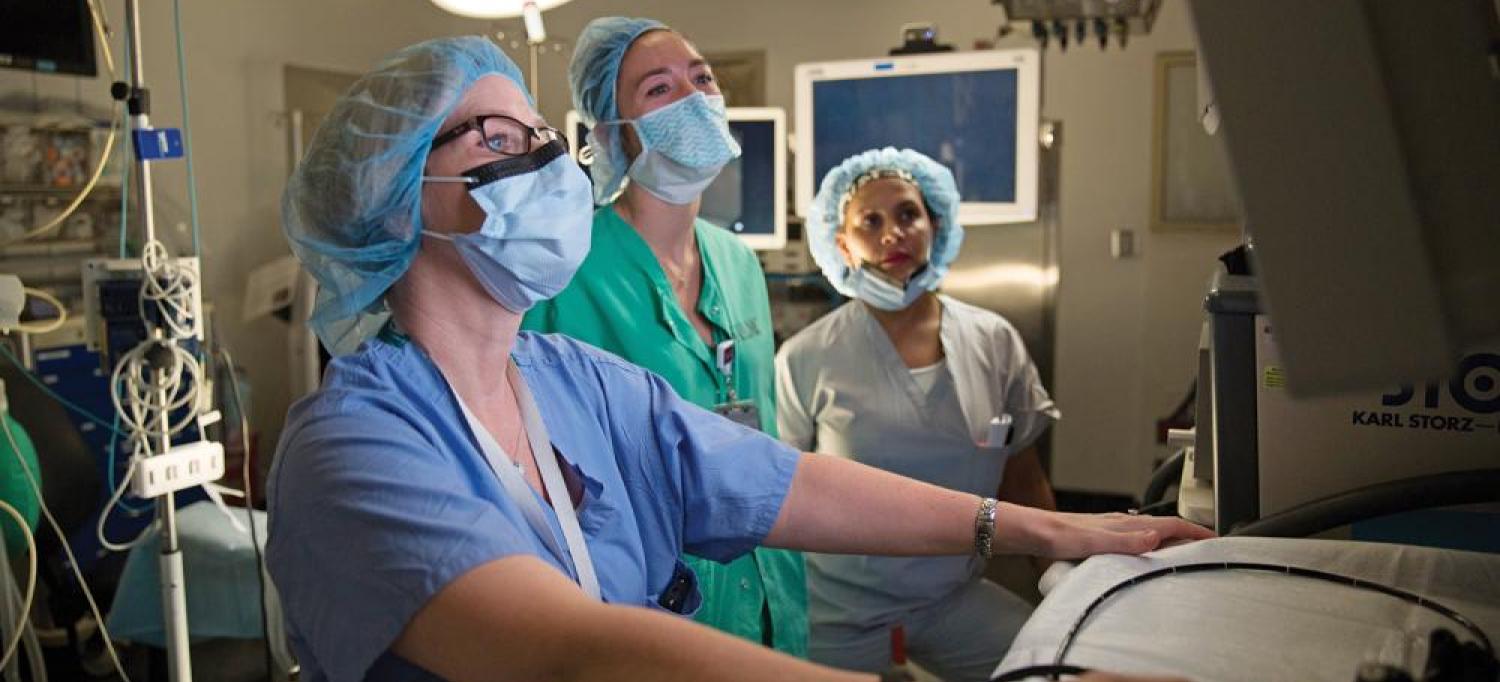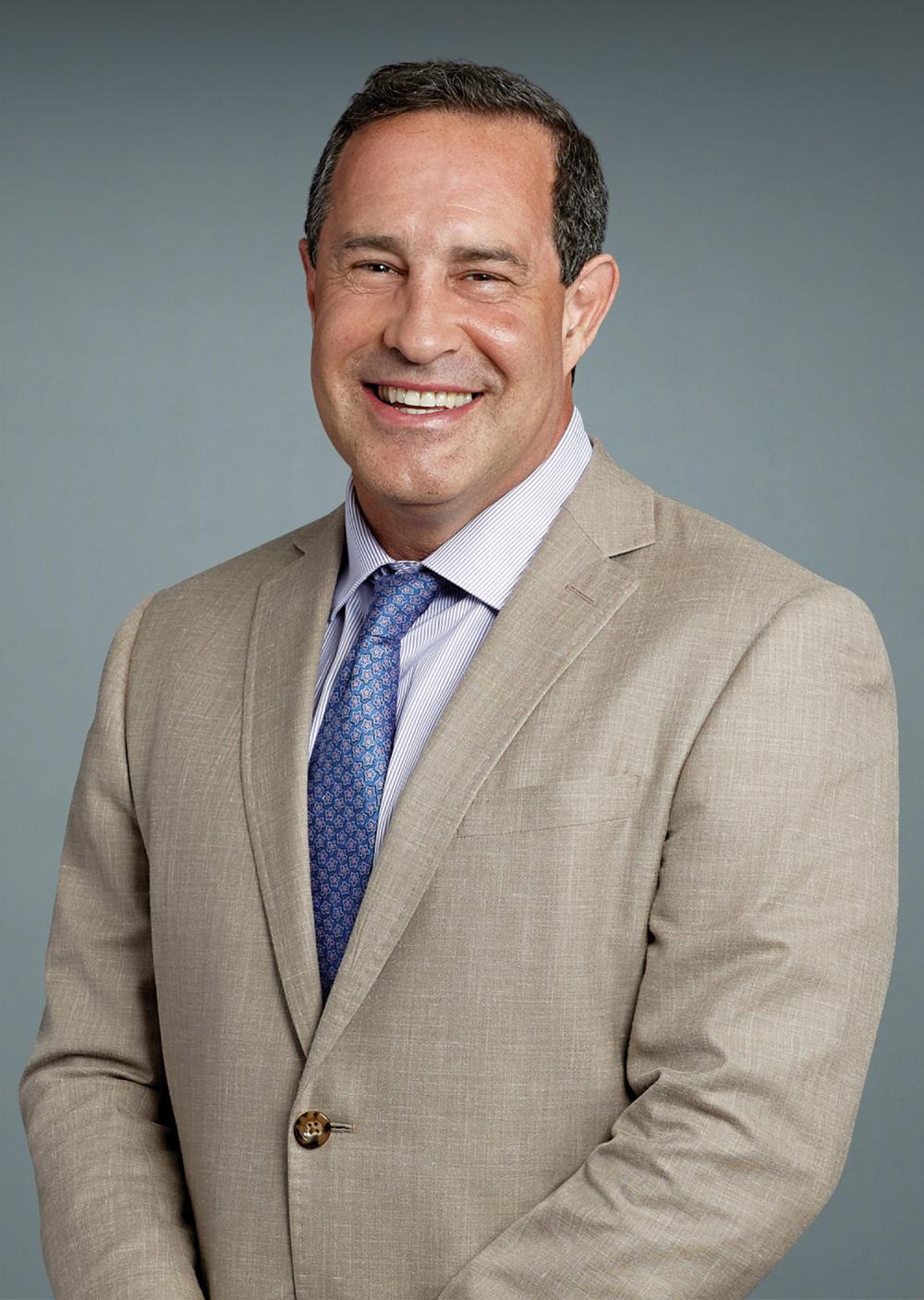
Gaetane C. Michaud, MD
PHOTO: Karsten Moran
NYU Langone’s interventional pulmonary team is playing a leading role in the development of novel therapies that could significantly improve lung cancer patient outcomes.
The team, led by Gaetane C. Michaud, MD, associate professor of medicine and cardiothoracic surgery, and section chief for interventional pulmonology, includes five board-certified interventional pulmonologists—and one advanced interventional pulmonary fellow—who treat a comprehensive range of benign and malignant diseases of the lungs, including lung cancer, asthma, pleural disease, and tracheobronchomalacia.
The interventional pulmonology team works closely with thoracic surgeons and oncologists from NYU Langone’s Perlmutter Cancer Center to diagnose and treat cancers of the chest. “This model of collaborative care integrates all areas of expertise to create one team for the patient,” says Dr. Michaud. “Our joint teams provide all pulmonology services on-site at the center, so the patient has continuity of care without the need to travel.”
Patient volume has doubled since 2016.
The Promise of New Pleural Treatment Pathways
With grant support from NYU Langone’s Center for Healthcare Innovation and Delivery Science (CHIDS), the interventional pulmonary team has built integrated, multidisciplinary clinical pathways to ensure optimal quality of care throughout the management of benign and malignant pleural disease. Over the next year, those pathways, focused on enhancing areas such as time to appropriate definitive management, cost of care, and value of care, will be incorporated into the Epic electronic health record.
Members of the group are ideally positioned to develop such comprehensive pathways, having been involved in many of the major clinical trials in the history of interventional pulmonology. Dr. Michaud and her colleagues are currently leading several trials focused on understanding the immune response to lung cancer, including pioneering studies of immune profiling of tumor-involved lymph nodes in non-small cell lung cancer and mesothelioma. At the American Thoracic Society’s International Conference in May 2017, Dr. Michaud presented research on the outpatient use of a combined pleuroscopy and tunneled pleural catheter insertion as a diagnostic and therapeutic tool for patients with recurrent pleural effusion.
“Rather than injecting chemicals such as talc into the cavity, which can lead to harsh side effects and toxicity, by combining pleuroscopy with tunneled catheter placement, we were able to seal the space, resolve the patient’s symptoms, and determine the etiology of the effusion,” says Dr. Michaud. “We are able to drain all fluid and get an immediate response, turning what used to be a four-day hospitalization into a one-hour outpatient procedure.” To date, the group has performed this combined procedure on more than 40 patients with no significant complications, and is now designing a clinical trial to be investigated by other national centers of interventional pulmonology.
High-Potential Trials in Lung Cancer and Mesothelioma
New trials led by Daniel H. Sterman, MD, the Thomas and Suzanne Murphy Professor of Pulmonary and Critical Care Medicine, professor of cardiothoracic surgery, and director of the Division of Pulmonary, Critical Care, and Sleep Medicine, could offer new treatment potential for patients with lung cancer and mesothelioma who are not candidates for surgical intervention. Dr. Sterman’s research initiative, the NYU Langone Pulmonary Oncology Research Team (PORT), focuses on clinical and translational research in lung cancer, mesothelioma, metastatic pleural disease, and other thoracic malignancies. PORT is closely integrated with the NYU Langone Interventional Pulmonary Program, and is an integral component of Perlmutter Cancer Center’s new Lung Cancer Center.
In 2016, Dr. Sterman published the results of a phase I trial assessing in situ vaccination using immunogene therapy to induce clinically significant anti-tumor immune responses. In the study, published in Clinical Cancer Research, 40 patients with unresectable malignant pleural mesothelioma received two doses of an adenoviral vector containing the human IFNα2b gene (Ad.IFN), concomitant with a 14-day course of celecoxib followed by chemotherapy.
The therapy appeared safe, and overall survival was significantly higher than historical controls, supporting a multicenter randomized clinical trial of chemo-immunogene therapy versus standard chemotherapy alone. This trial will start in mid-2018, and NYU Langone will be the coordinating center for this landmark clinical trial. NYU Langone is also a select site for an industry-sponsored study, led by Dr. Michaud, testing peripheral photodynamic therapy as an ablative technique for patients with lung tumors who are not candidates for surgical resection.
In new trials led by Daniel H. Sterman, MD, chemo-immunogene therapy appeared safe, and overall survival was significantly higher than historical controls, supporting a multicenter randomized clinical trial of chemo-immunogene therapy versus standard chemotherapy alone.
Renowned Thoracic Surgeon Joins NYU Langone as Director of New Lung Cancer Center
Robert J. Cerfolio, MD, MBA, professor of cardiothoracic surgery, whose innovations in robotics have led to practice-changing advances in lung cancer surgery in the United States and countries around the world—recently joined NYU Langone and its Perlmutter Cancer Center as director of clinical thoracic surgery and founding director of the Lung Cancer Center. Dr. Cerfolio previously served at the University of Alabama (UAB) Hospital in Birmingham, Alabama, as the James H. Estes Family Lung Cancer Research Endowed Chair and chief of thoracic surgery. Having performed more than 17,000 operations, he is among the most prolific thoracic surgeons in the world. Equally important, he is known internationally for the highest standards of care and innovative leadership.


